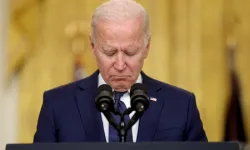Fears of a new migration crisis have dominated the agenda of German politics. Recently, there have been frequent calls for toughening measures against irregular migration and migrant smuggling, limiting the social benefits that make Germany attractive for asylum seekers, introducing a cap on the number of asylum seekers who will be allowed to stay in the country, introducing border controls and even closing the borders.
"WE HAVE REACHED THE POINT WHERE WE CANNOT BEAR THE BURDEN"
Local governments and municipalities in the Länder have long complained that their capacity to take in asylum seekers has been exceeded and that they can no longer take the burden.
However, recent developments, especially in Poland and Italy, which have raised concerns that the flow of irregular migrants into Germany could increase further, have increased tensions in German politics.
The main opposition wants Chancellor Olaf Scholz of the Social Democratic Party (SPD) to urgently change his refugee policy.
During the 2015 Syrian refugee crisis, then-Christian Democratic Union (CDU) Chancellor Angela Merkel, who said "We can do it", resolutely pursued the open-door policy despite all objections.
Now Merkel's main opposition party, the CDU, together with its partner, the Christian Social Union (CSU), are demanding a halt to irregular migration into Germany, and for this they are calling for a tough policy that they say would mark a "new milestone" in asylum seeker policy.
"WE CAN'T DO IT ANYMORE"
The CDU/CSU have made these demands in a motion to the Bundestag on a "German Pact on Migration Policy".
The motion includes a series of demands. Among them are the introduction of regular border controls at Germany's borders with Poland, the Czech Republic and Switzerland and the refusal to allow people who have applied for asylum in other EU member states or whose applications have been rejected to enter Germany.
It also proposes limiting the financial benefits provided to asylum seekers. In this way, it is stated that the perception that Germany is more attractive among migrants can be eliminated.
Making a statement about the proposals, CDU's Jens Spahn argued that as democratic parties, they urgently want to take joint decisions on these issues, only in this way they can prevent populists and radicals on the left and right from exploiting the issue of migration.
GOVERNMENT REFUSES TO ACCEPT CRITICISM
The government refuses to accept the opposition's criticism that migration is poorly managed. On Friday morning, there was a heated debate in the plenary session of parliament on the CDU/CSU motion.
Federal Interior Minister Nancy Faeser rejected accusations that the government's policies were exacerbating migration, arguing that measures to prevent irregular migration were yielding results.
SCHOLZ: NEW MEASURES POSSIBLE
SPD Chancellor Olaf Scholz also made a statement as the debate flared up. Scholz said that the number of asylum seekers coming to Germany has increased significantly and that they may take new measures, especially at the Polish border.
Pointing out that Germany will continue to recognize the right to asylum for those fleeing war and oppression, Scholz signaled that they will take a stricter stance against illegal immigrants.
Olaf Scholz emphasized that those who come here but do not meet the conditions for asylum and those who commit crimes here should be sent back.
Germany receives the highest number of asylum applications among EU countries. In Germany, where approximately 3 million 260 thousand asylum seekers live, 204 thousand 461 people applied for asylum in the first eight months of this year alone. Last year, the total number of applicants was 217,774.
TENSIONS IN EUROPE
On the one hand, the Scholz government, which is trying to overcome the stagnation in the economy and to overcome the increasing deficit in professional fields such as engineers, doctors and nurses due to the aging population by receiving more qualified immigrants from abroad, on the other hand, is trying to curb the influx of irregular migrants, which is instrumentalized in the discourse of the far right.
At the same time, this quest is leading to an escalation in the German government's relations with Poland and Italy.
About a week ago, the German government announced that Italy, which it accused of failing to fulfill its obligations under the Dublin Convention, would no longer voluntarily accept asylum seekers from Italy to Germany, and that the Solidarity Mechanism established in 2022 between European countries was suspended with Italy as of the end of August.
Germany is toughening its refugee policy!
There is a refugee crisis between Germany and other European countries. Germany is discussing abandoning the "open door" policy implemented under Merkel. There is a crisis with Italy and Poland over refugees.
Trending news

Snoop Dogg to carry the Olympic torch

Lily James Expresses Admiration for Hailey Bieber’s Rhode Skincare Line

Taylor Tomlinson Will Explore Her Faith and Sexuality on Tour!

'Alien mummy' in Peru raises eyebrows

Scandal in the heart of Europe: Child abuse in a church!

Kamala Harris’ Running Mate: Here’s Who Could Be Her VP After Biden Drops Out And Endorses Her







